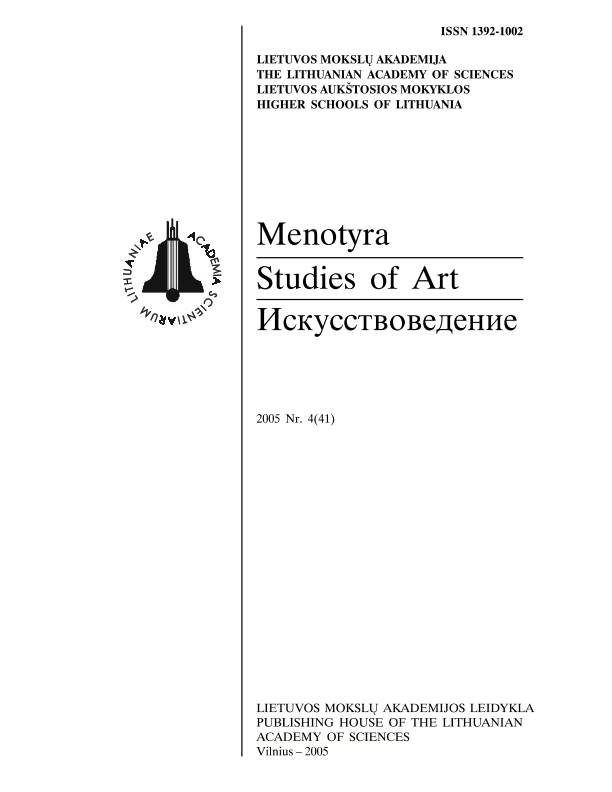Lietuvių teatro kritikos žingsniai (1904-1914 m.)
Steps of Lithuanian theatre criticism (1904-1914)
Author(s): Laura BlynaitėSubject(s): Theatre, Dance, Performing Arts, Pre-WW I & WW I (1900 -1919), Theory of Literature
Published by: Lietuvos mokslų akademijos leidykla
Summary/Abstract: When in 1863 the uprising was lost, Lithuanians fought against the ban of press, Russification policies in schools, and the persecution of the Catholic Church by secretly publishing and distributing Lithuanian press, founding underground Lithuanian schools and organizing Lithuanian gatherings. For political reasons, these gatherings were not being discussed or announced hi the newspapers published before 1904. When the press ban was abolished in 1904; not only Lithuanian press, but also Lithuanian theatrical culture recovered. Vilnius became the centre of all activities. The same, tenuous repertoire from the underground gatherings was shown, and the gatherings began to be viewed as light entertainment. The growing dissatisfaction with this repertoire led to productions of historical dramaturgical works. These evidently revealed a lack of professional acting and direction, an issue constantly being discussed by Lithuanian cultural figures who wrote about theatre at that time.In the development of the Lithuanian theatrical thought, the end of the 20th century's first decade is accentuated, when a group of public figures actively prepared to commemorate the ten year anniversary of the "America in the Bath" performance in Palanga. One of them, Gabrielius Landsbergis-Žemkalnis, very specifically formulated the criteria for the further development of the theatre as well as for the enhancement of theatre criticism. At that time, cultural and public figures wrote about the issues of theatre art; among them were Sofija Čiurlionienė-Kymantaitė, Ona Pleirytė-Puidienė, Antanas Smetona, Balys Sruoga and Liudas Gira. In 1920, when professional theatre had developed, it was difficult for the critics to let go the ways of thinking and writing that were left over from the times of amateur theatre. The situation changed only in the beginning of the fourth decade when a new generation, members of B. Sruoga's theatre seminar, began to work in the press.
Journal: Menotyra
- Issue Year: 2005
- Issue No: 4(41)
- Page Range: 46-48
- Page Count: 3
- Language: Lithuanian

